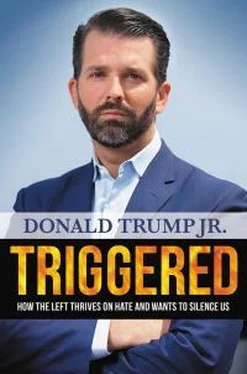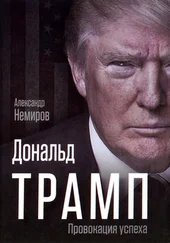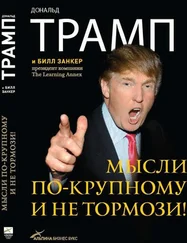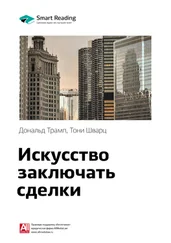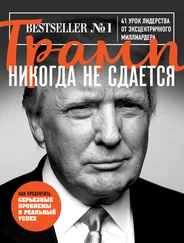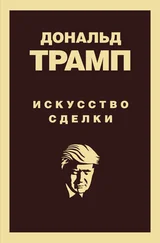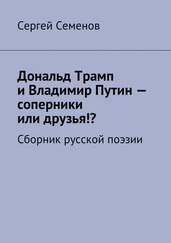Luckily, the dean of students at Hill, a man named Gordon McAlpin, took me under his wing. The school had a small rifle range for small-bore shooting and another one just off campus for skeet and trap shooting. I had shot an air gun with my grandfather but had never done any shooting with a real firearm. Mr. McAlpin took me to the range my first time. Most of the students went there once or twice as a novelty. From the first time I went, however, I was hooked and went back as much as I could. You couldn’t find a better outdoors mentor than Mr. McAlpin. He was the consummate outdoorsman, the kind of guy who could shoot a perfect skeet score with a .410 pump-action Winchester Model 42. Soon I started showing my own talent for shooting.
One Saturday in school, Mr. McAlpin told me to meet him in the parking lot the next morning at 6:00 a.m. and to dress warmly. That might not fly in today’s world of helicopter parenting, but I thought it was awesome. Along with another student a couple of grades higher, I climbed into his car and we drove about an hour outside the campus to shoot birds. In the woods, I remember thinking that this was the coolest thing in the world. Afterward, I read every book I could about hunting and took every opportunity to shoot and hunt. Mr. McAlpin arranged for me to take my hunter’s safety course so I could get licensed. We went hunting on opening day of Pennsylvania deer season. It was the quintessential American hunting experience: I carried an old-school 30-30 lever-action rifle and it was on public land, which forms the basis of so much American outdoor life. It’s the reason I fight so hard to this day to preserve public land, and the lifestyle that comes with it.
There was also a teacher at Hill who taught me the basic fly-casting motion. I got an L.L. Bean starter kit and went from there. I knew so little about it that for the first couple of years, I was reeling in the fly line instead of stripping it in because I didn’t know what I was doing. In time, however, I taught myself and became pretty good at it.
I guess I was seventeen when I got my first car, a Jeep (I had the Jeep and then two Dodge Durangos in a row, and that was pretty much the extent of my car history for the first twenty years I drove). The last two years at Hill School, I took solo hunting and fishing trips. I’d work for my father for the first two months of the summer and then jump into the Jeep and drive to parts of Pennsylvania, upstate New York, and New England.
The summer after I graduated, I headed west to the Rockies. That time of the year isn’t hunting season, so I hiked and fished. I didn’t want to be around tourists, so I would find what looked like a good high-mountain lake maybe fourteen miles away from my location on a map or atlas. (For you younger folks, those were things we used to find our way around when dinosaurs still roamed the earth.) I had learned orienteering from my grandfather, so a map and a compass were usually enough for me.
I would throw my pack on and go spend a few days up there. Sometimes I’d lose my bearings, come out somewhere completely different, and have to hitchhike my way back to the Jeep. Then, I’d drive somewhere else and fish a different river or lake. I’d live out of the back of my truck for a couple of weeks at a time and go for days without seeing anyone. Sometimes I would come upon someone and share a camp for a day or two.
I continued my trips out west throughout college. I’ve driven across country four or five times by myself. I have fully covered Wyoming, Montana, Colorado, Arizona, and New Mexico. I hiked much of the western Rockies, wherever there was good fishing.
While attending the Hill School, I also learned a lesson courtesy of Donald J. Trump.
I was a very average student until the end of my freshman year. When my father read my report card, he sat me down.
As disciplinarians, my parents were completely different. My mother had old-school Eastern European ideas about raising a child. If she thought you’d done something wrong, she’d whack you before she said a word. My father used a more psychological technique: he’d have one of “those” talks with you, and you’d walk away thinking that whatever you’d done wrong was the stupidest thing in the world. He was good at guilt trips.
“These grades are fine,” he said, “if you want to be average.”
He knew exactly how to motivate me. When I went back to school, it was as though he’d put a rocket in my butt. Whereas I had crammed for maybe an hour for a test, I’d now spend eight hours studying. I’d put in thirty hours for an exam. I went from being an average student to getting nearly straight As. I became the editor of the school’s literary journal and yearbook. By my senior year, I was mentoring other students. I rose to the top of the GPA rankings in my class. In fake news hit pieces about me, you’ll read that the only reason I got into the Wharton School at the University of Pennsylvania was that my father went there and has donated to the school. Maybe that had something to do with it, although all of them say the donation came after I had already gotten in. But in my heart, I know that even if I wasn’t my father’s son, I had the grades to get into Wharton.
The last big lesson I learned at Hill had nothing to do with the school at all.
The campus of the school sat on the very eastern edge of the Rust Belt. There was a closed Firestone Tire plant in nearby Pottstown, Pennsylvania, and Bethlehem Steel, which would close just after I graduated, was about an hour’s drive away. The juxtaposition was not lost on me. Here you had a wealthy boarding school up on a hill surrounded by the modest homes of blue-collar workers, many of whom were out of work. I didn’t know it then, but the men and women who had once worked in the now-shuttered factories, who staked their family’s future on those same factories, were the same people I would later meet at Trump rallies all around the country. They’re the ones who would tell me stories about their lives and families as they waited for my father to arrive and deliver the message that they had been waiting to hear. I lived with those people. I had local friends, dated local girls. After a while, I started feeling as though I was more from Pennsylvania than from New York City, and I was proud of it.
Even in 1990, when I began boarding school, we had already begun the process of exporting the American dream all over the world, sending the jobs that used to belong to hardworking Americans of all colors, creeds, and genders to countries that couldn’t have cared less about our values. They were our biggest export. In some cases, we sent those jobs to countries that hated our guts, and then we paid the price for it later. At Hill, I could already see some of that anxiety and desperation building around me.
In my junior year, Bill Clinton signed one of the most disastrous trade agreements in the history of our country. Democrats promised that the North American Free Trade Agreement would usher in a golden age for US business and send our economy skyrocketing. Instead, NAFTA did the exact opposite: it caused a huge trade deficit, hollowed out Detroit, and sent US companies scrambling over the border to exploit cheap labor.
It wasn’t only the Rust Belt that suffered. American farmers did, too. Before NAFTA, farmers had been $200 million up in the balance of trade with Mexico and Canada. A few years after the deal was signed, they were minus $1.5 billion. Maybe even worse was the fact that the crops we were importing were displacing the crops we grow here. Avocados, berries, and tomatoes flooded our market and came without any tariffs, quotas, or quality food safety restrictions.
Whatever way you looked at it, NAFTA was a disaster. Everyone knew it. During the campaign, my father said over and over that he was sick and tired of watching us export the American dream to our competitors while Americans—good, hardworking Americans—suffered. He was sick of watching countries live our American dream while our jobs went down the drain because of stupid, gutless Democrat decisions. The United States–Mexico–Canada Agreement (USMCA) will bring much of those dreams back. It will increase US auto parts production. It will force Mexican companies to pay their autoworkers at least $16 an hour, which will help keep factories here in the United States. It will open up the Canadian market to US dairy farmers. Yet, at this writing, the Democrats continue to slow-walk ratifying the deal. Why? Because they hate my father more than they love the American worker—and don’t care if the American worker is collateral damage for their gains. For years, Democrats did a great job to build up the manufacturing base in other countries. In America? Not so much. They sat on their hands and watched the factories of iconic manufacturers such as Firestone and U.S. Steel empty and rust. As of right now, Nancy Pelosi won’t bring the trade deal up for a vote simply because she doesn’t want my father to have any credit. Can you imagine that? Because of her jealousy of DJT and his success, she will continue to strangle the American dream. The Democrats would much rather see America fail than for it to succeed with Trump at the helm. My father has done everything he can to keep Democrats from hurting the American worker. Later in this book, I talk about his being a blue-collar billionaire for just that reason: he understands workers, and would never think of them as pawns in trade deals that literally take away their jobs. The Democrats can give you all the talking points in the world, and their partners in crime, the liberal media, will run stories to support them. (Please don’t be swayed by the liberal media. Read @realDonaldTrump and @DonaldJTrumpJr’s tweets. They’re the unfiltered truth.)
Читать дальше
